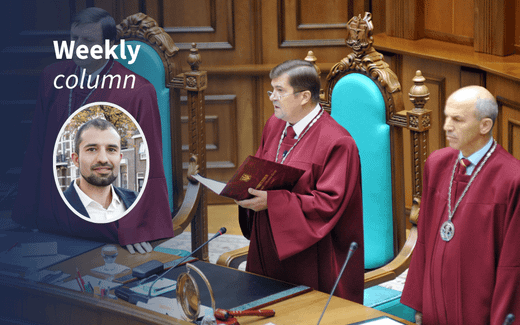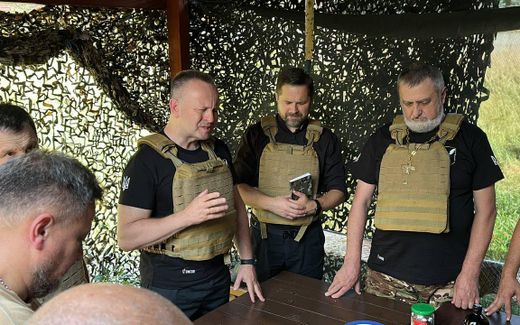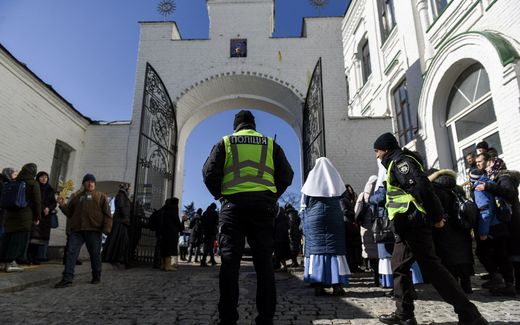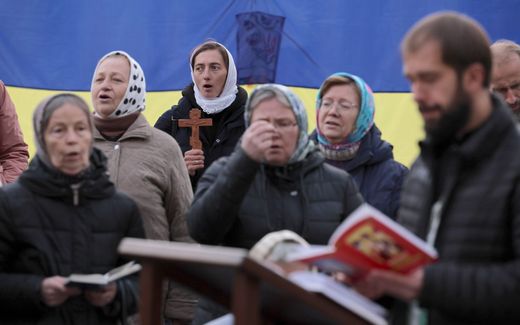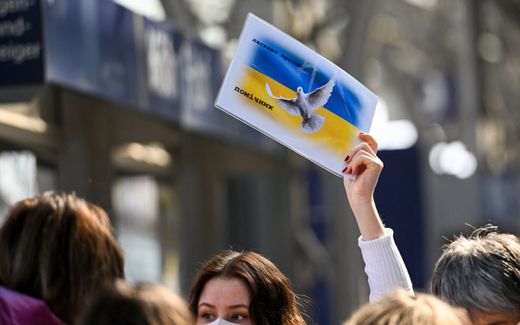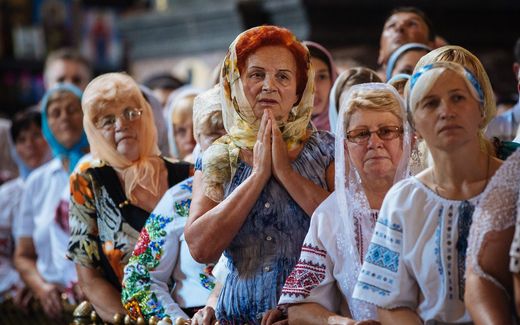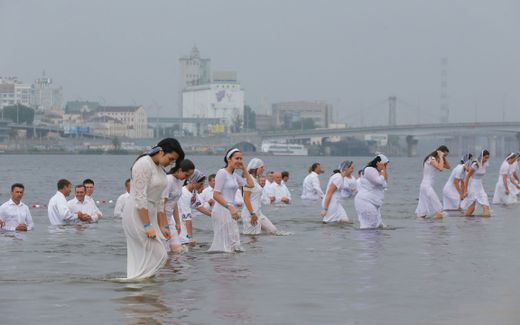Military deferrals for clergy in Ukraine: reality or illusion?
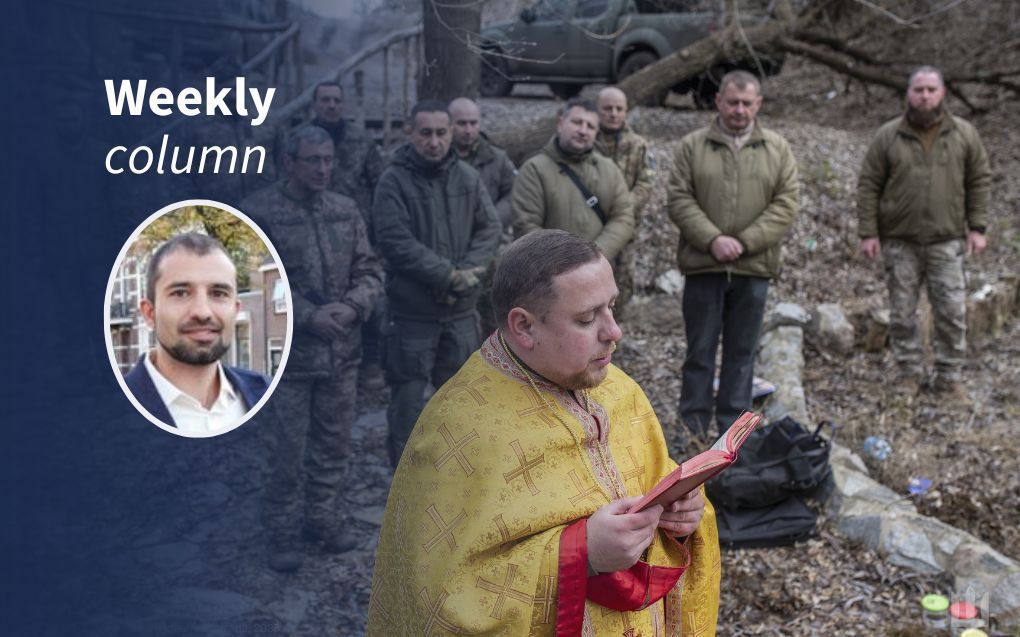
A military chaplain in Ukraine conducts a prayer service for soldiers as part of celebrating Ephiphany. Photo canva.com, EPA, 33rd Separate Mechanized Brigade
Christian Life
Ukraine is giving more pastors an exemption from conscription. However, whether this will work in practice remains a big question, says Oleksii Blyzniuk.
Stay up to date with Christian news in Europe? Sign up for CNE's newsletter.
Religious organisations are critically important institutions. That means they should continue to serve the people, even when there is war and soldiers are needed. Last December, the Cabinet of Ministers in Ukraine amended the Law on Mobilisation so that pastors can also get an exemption from conscription. At present, discussions are ongoing regarding the specific criteria for reserving conscripted clergy for work in the church.
Challenges
To implement this resolution, the Cabinet of Ministers must develop criteria for determining when a religious organisation is critically important for the economy and the sustenance of the population under martial law. Then, a list of eligible religious organisations that meet these criteria must be compiled.
Additionally, there must be a list of clergy positions for which people can be reserved and get an exemption from military service. The State Service of Ukraine for Ethnopolitics and Freedom of Conscience (SEFC) keeps this list of clergy eligible for military service but who received an exemption.
According to the resolution, the SEFC will be responsible for reserving clergy, as the government body decides whether a particular religious organisation qualifies as critically important under martial law.
Furthermore, SEFC representatives must carefully plan the logistics of implementing the resolution and designate officials responsible for processing the requested reservations.
However, although the government has assigned SEFC the massive task of implementing this resolution, it has not provided the necessary resources to carry it out. Currently, SEFC lacks the technical capacity to implement all the decree requirements fully.
SEFC officials have already stated that this will be highly challenging, as many of their staff have also been mobilised. As a result, an enormous workload will fall upon a disproportionately small number of SEFC employees.
Necessary orders
One of SEFC's key tasks is to prevent misuse. Churches, for example, could be tempted to submit reservation requests for people who are not eligible for exemption from military service. The head of the SEFC emphasised that abusing the new regulation is important for preserving the SEFC's reputation and the credibility of churches.
Potential risk
He said that preparing the necessary orders and obtaining interdepartmental approvals may take a significant amount of time. Each church will need to submit a set of documents for each clergyman, which will then be processed by SEFC staff to see whether clergymen are eligible for exemption. However, it is already anticipated that problems will arise with unregistered religious communities, which are difficult to identify within.
Ukraine's legal framework. Additionally, clergy who work unofficially or those without a fixed place of ministry (such as freelance clergy) may not qualify for reservation. This suggests that SEFC will require churches to provide proof of official employment for their clergy.
Another potential risk is that a clergyman might be affiliated with a religious community that exists only on paper. Verifying whether a particular community is active and operational is time-consuming, especially given the limited staff at SEFC.
A separate concern for SEFC is the issue of "inflated clergy numbers" within specific communities — where unscrupulous religious leaders may attempt to register more clergy than necessary by assigning them part-time roles. SEFC officials are already aware of this risk and are preparing measures to prevent abuse.
Technical capacity
Additionally, SEFC does not have its own registry of religious organisations or access to the Ministry of Justice's databases. As a result, all data will have to be entered manually. Moreover, as previously mentioned, all of this must be done while dealing with a personnel shortage.
One key problem preventing an accurate assessment of religious institutions is the lack of official church membership statistics. This allows churches to manipulate information about their size. Each year, SEFC receives statistical reports from local authorities, but these figures are not always reliable. The number of registered religious organisations does not reflect the actual number of members.
Surveys could serve as an alternative, but the existing polls only measure religious affiliation or sympathy toward a particular denomination. They do not ask whether respondents are formal members of specific religious communities, so the available statistics do not provide an accurate picture.
Even data on church attendance during religious holidays comes from the National Police rather than the churches. This complicates any effort to accurately assess the number of believers and the size of each religious community.
In many Western countries, fixed church membership is standard practice. If Ukraine continues its path toward EU integration, its churches will likely need to adopt a similar system.
Positive initiative
Taken together, this is still a positive initiative from the government—one that churches have been awaiting since the beginning of the full-scale invasion. However, SEFC must carry out an enormous task with little funding and limited resources. This will undoubtedly delay the practical implementation of clergy reservations for a considerable amount of time.
Given the pace at which the new U.S. administration is pushing for "peace at any cost" in Ukraine, there is a strong possibility that by the time SEFC completes all legal procedures and launches the reservation process, the need for such reservations may no longer exist.
Related Articles


